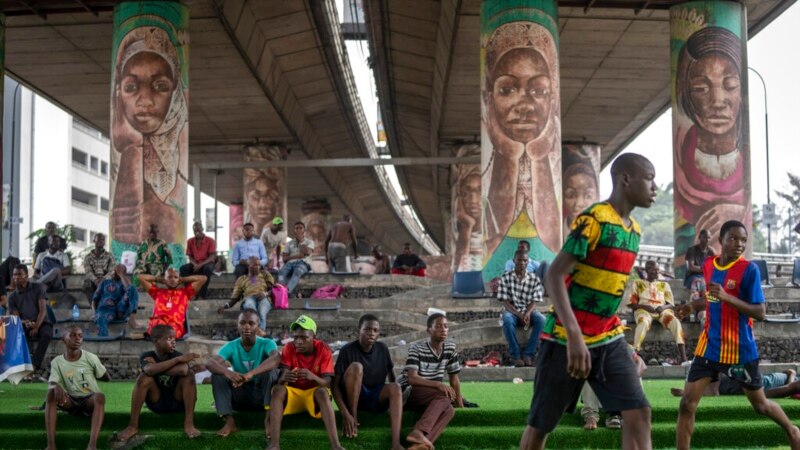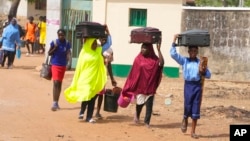This website uses cookies so that we can provide you with the best user experience possible. Cookie information is stored in your browser and performs functions such as recognising you when you return to our website and helping our team to understand which sections of the website you find most interesting and useful.

As Nigerians prepare to vote Saturday, VOA’s Hausa Service spoke with people who shared their hopes, expectations and fears about the direction of the country.
For Mustapha Abubakar of Zamfara state, the primary issue to be addressed is insecurity.
According to the UNHCR, more than 3.1 million people are internally displaced and 343,000 have been forced to flee the country due to violence. Extremist violence, intercommunal clashes and kidnapping for ransom have all played a role in deteriorating security.
“Definitely any president that is coming to power now, we want him to address the proper issue on the security, then followed by that is food, because there is hunger,” Abubakar said. “In fact, the issue of the security is one that has to be leading to the massive, massive hunger that is in the masses of the people.”
The violence has produced a climate of fear in the country. According to a Gallup Poll released Friday, Nigerians feel less safe than they did eight years ago when President Muhamadu Buhari took office. Only about 53% of those polled said they feel safe walking alone at night, down from 61% when Buhari was first elected.
As Safiya Ajao, a filmmaker from Jos told VOA, “It is very paramount that we are safe in our own country.”
People also voiced concerns about the economy and the cost of living. Global shocks including the COVID-19 pandemic and Russia’s war in Ukraine have led to spikes in the cost of staple food items. The inflation rate inside the country rose to nearly 22% in January.
“In Nigeria today people are suffering because of the way things are expensive, especially in matters of food items,” Aisha Muhammad Sintalma of Maiduguri told VOA. “So, if the food items are cheap, I would be happy. This is the main concern I have. Everything can be possible if food is available for citizens.”
Gallup found that 3 in 4 Nigerians struggled to pay for food and nearly half had difficulty affording housing costs.
Other Nigerian voters pointed to the need to invest in education to give young people the skills to find jobs or start their own businesses.
“I would like the next president to look at the issue of education more seriously and after that the issue of employment, not necessarily the white collar job, but create an environment for the young ones, the entrepreneurs, for them to have the businesses flow,” said Mahmud Danjuma, of Borno. “For everyone to have peace of mind that is the issue of security.”
Faith in elected officials is also on the decline in Nigeria. Voters cited issues including corruption, an inability to deliver on promises and leaders who are out of step with the people as undermining their faith in government.
According to Gallup, 94% of Nigerians see corruption in government as widespread. Voters’ approval of leadership dropped from more than 60% in 2015 to 24% in 2022.
“There are so many challenges that are confronting in Nigeria everyday people. I want him to look into those and address it,” said Chris Orji of Abuja. “I just I want a president that can easily interact with people on a monthly basis, not the one to be cut off and we wouldn’t hear him. And those who are around him will not be telling him the true feelings of Nigerians.”
This report originated in VOA Hausa Service.



 Africana55 Radio
Africana55 Radio 

